NEWS
We’ll achieve 95% digital literacy by 2030 – Nigerian Govt
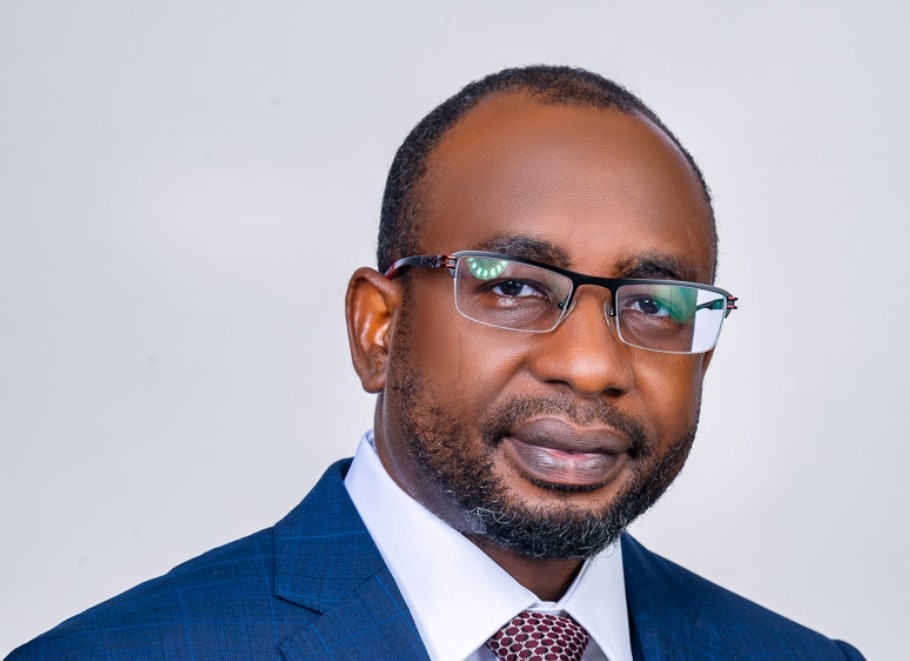
- /home/bnckfvdk/public_html/wp-content/plugins/mvp-social-buttons/mvp-social-buttons.php on line 27
https://osundailyng.com/wp-content/uploads/2025/07/Well-achieve-95-digital-literacy-by-2030-Nigerian-Govt-910x600.jpeg&description=We’ll achieve 95% digital literacy by 2030 – Nigerian Govt', 'pinterestShare', 'width=750,height=350'); return false;" title="Pin This Post">
- Share
- Tweet /home/bnckfvdk/public_html/wp-content/plugins/mvp-social-buttons/mvp-social-buttons.php on line 72
https://osundailyng.com/wp-content/uploads/2025/07/Well-achieve-95-digital-literacy-by-2030-Nigerian-Govt-910x600.jpeg&description=We’ll achieve 95% digital literacy by 2030 – Nigerian Govt', 'pinterestShare', 'width=750,height=350'); return false;" title="Pin This Post">
The Director General of the National Information Technology Development Agency, NITDA, Kashifu Inuwa, has reaffirmed the Federal Government’s commitment to achieving 95% digital literacy across Nigeria by the year 2030, with an ambitious milestone of 70% by 2027.
This disclosure was made in total alignment with the present administration’s priority areas of reforming the economy for sustained inclusive growth and accelerating diversification through industrialisation, digitisation, creative arts, manufacturing, and innovation.
Making this known during a collaborative meeting hosted by the Universal Basic Education Commission, UBEC, Inuwa highlighted the government’s strategic prioritisation of human capital development as central to its national transformation agenda.
“We started this journey in 2023 when President Bola Ahmed Tinubu came on board and he made it clear that economic diversification and inclusivity are part of the administration’s agenda,” he noted.
“And the president outlined this in 8 priority areas to achieve the vision, with priority number 7 specifically focused on accelerating industrialisation, digitisation, creative arts, manufacturing, and innovation,” he added.
Recognising the importance of digital fluency in achieving this agenda, he stated that NITDA is committed to investing in the digital empowerment of citizens through the development of the National Digital Literacy Framework (NDLF), a strategic blueprint aligned with international best practices.
He added that to tailor the framework to Nigeria’s specific needs, 6 core competency areas were incorporated to include device and software operations, information and data literacy, communication and collaboration, content creation, safety, and problem solving.
He explained that the framework would address all levels of digital fluency, from basic, intermediate to advanced levels, to make digital skills accessible to every Nigerian, from primary school pupils to working professionals.
According to Inuwa, despite data limitations, NITDA estimates that Nigeria’s digital literacy rate currently stands at 50%, up from 44% in 2021, based on extrapolations from the World Bank’s Better Life Report.
The NITDA DG disclosed that the agency has been working closely with the Nigerian Educational Research and Development Council (NERDC) in developing a curriculum for digital literacy, which can be infused into formal education.
He said the visit is a continuation of NITDA’s ongoing engagements with key education stakeholders, including the Federal Ministry of Education, the National Universities Commission, NUC, and the Nigerian Educational Research and Development Council, NERDC, all aimed at advancing digital literacy across all levels of learning.
Inuwa also revealed ongoing collaborations with global platforms such as Coursera to train teachers using AI-powered lesson generation tools and provide scalable online training.
It is worth recalling that late last year, NITDA partnered with the Nasarawa State University in collaboration with CISCO in launching the Digital Learning for NSUK, DL4NSUK initiative to enhance digital literacy in tertiary institutions, and equipping graduates with the skills needed to be digitally proficient and globally competitive.
While stressing that the entire process, from curriculum development to classroom delivery, would require a whole-of-government and whole-of-society approach, Inuwa said, “This is not a journey we can walk alone; we must bring everyone on board, education stakeholders, technology providers, state governments, and international partners.”
In response to the DG’s remarks, UBEC Executive Secretary, Hajiya Aisha Garba, confirmed that the Commission has officially received the digital literacy curriculum developed by NITDA and NERDC and has commenced internal review processes.
She acknowledged the curriculum as robust and forward-looking but stressed the need for simplification to suit early learners and teachers, citing challenges such as curriculum overload, limited teacher capacity, and inadequate infrastructure as key barriers to effective implementation.
She pledged that UBEC, in partnership with the State Universal Basic Education Board (SUBEB), will lead efforts to equip schools with computers and solar-powered infrastructure to support real learning.
“We’re committed to working with NITDA and NERDC to refine the curriculum, train teachers, and ensure effective delivery. Let us align the technical vision with grassroots realities to make a lasting impact,” she concluded.
NEWS
Oluremi Tinubu proffers innovative solutions to emerging challenges at Global First Ladies Forum
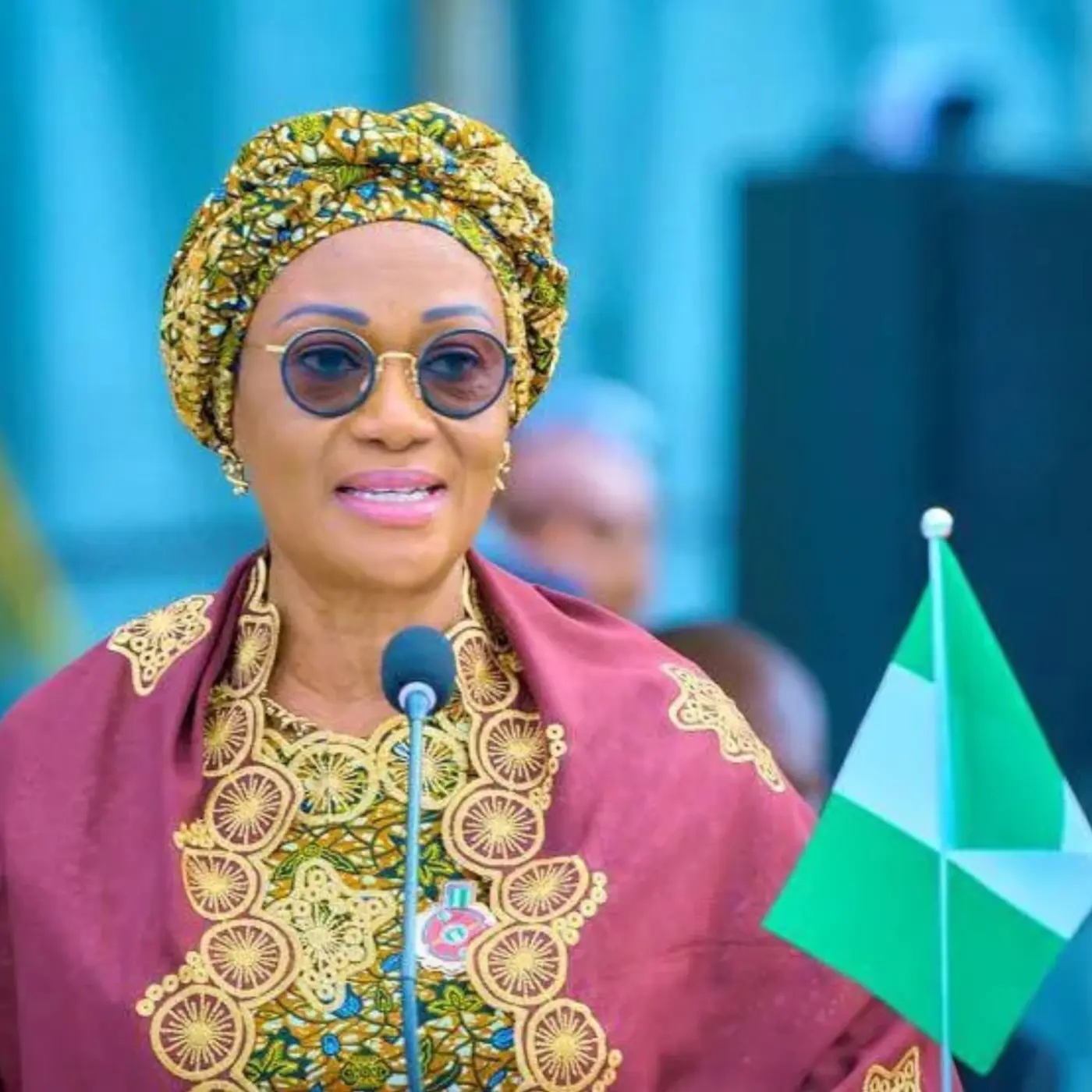
Nigeria’s First Lady, Oluremi Tinubu has advocated the adoption of innovative solutions to tackle emerging challenges facing the most vulnerable segments of societies around the world.
The First Lady stated her position while speaking at the 3rd Annual Global First Ladies Alliance Academy taking place in New York.
She cited her Renewed Hope Initiative as one of the vehicles she deploys in championing the course of women and youth to achieve better lives for families in Nigeria.
According to her, it is quite challenging striking a balance because what you do will either compliment your husband or be a burden to him. So do what you can and do it right.
“Don’t be afraid to give your little. That little could be a life saver for someone. Be bold to confront your challenges and that is what we are doing and we are beginning to see the impact gradually,” she said.
Other First Ladies present at the meeting including Ana Dias Lourenco of Angola, Anna Hakobyan of Armenia, Rossana Briceno of Belize, Lucrecia Peinado of Guatemala, Eliza Reid of Iceland, Monica Chakwera of Malawi, Gueta Chapo of Mozambique, Maricel de Mulino of Panama and Fatima Maada Bio of Sierra Leone.
The chief facilitator and founder of the Alliance, Dr Cora Neumann, a Montana state senator, pointed out to the participating First Ladies that their leadership is needed not only during their time in office but throughout their life time.
“Your ideas, challenges and insights have shaped every element of this experience and we welcome and expect you to continue shaping it with us.
“Together you are setting the global standard for what it means to be an effective First Partner-and collectively, you represent the hopes and needs of millions,” Neumann said.
She urged the First Ladies to exemplify leadership through the heart.
The academy organized by Global First Ladies Alliance in collaboration with Columbia University Mailman School of Public Health is an executive leadership training program that sharpens the focus of members and offers extra support.
Oluremi Tinubu’s special address at the academy in the coming days is expected to highlight her transformative interventions for children, women and the youths in Nigeria.
The academy’s focus is on strengthening the leadership skills of participants, enhance their impact and office efficiency as well as build a global leadership community among them.
NEWS
Senate passes three concurrence bills from House of Reps
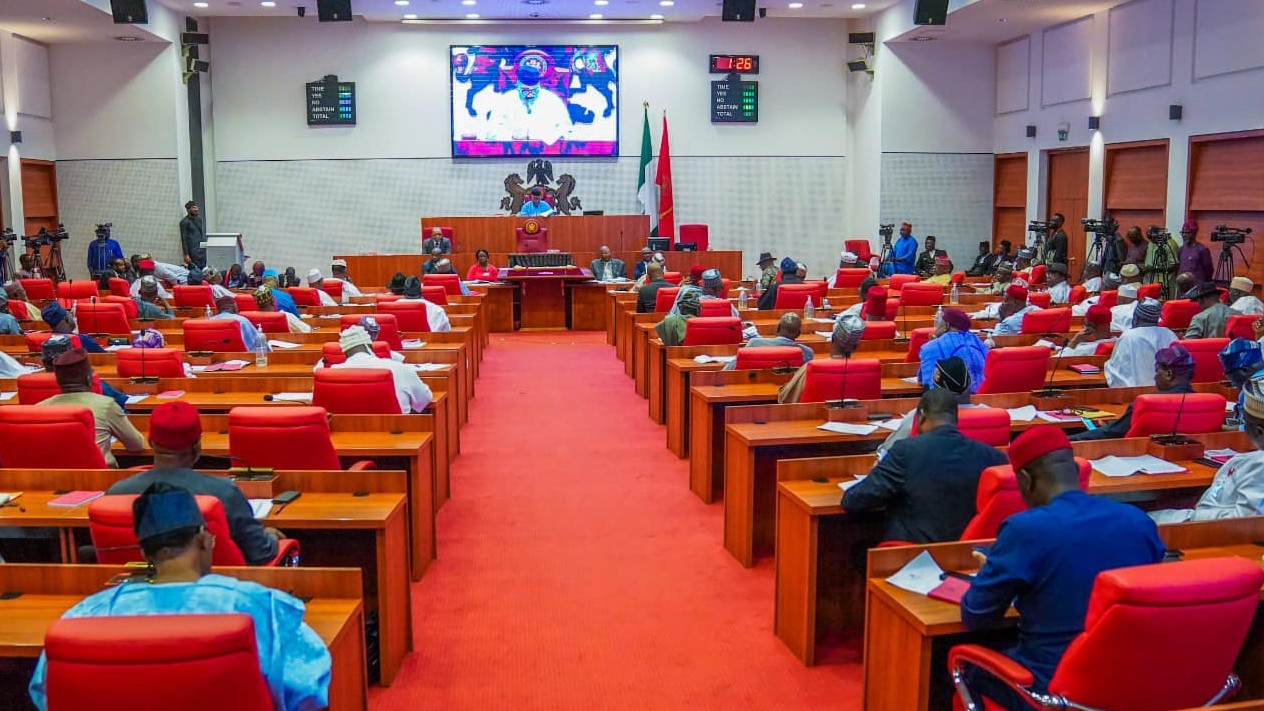
The Senate on Wednesday passed three concurrence bills from the House of Representatives.
This followed the presentation of the bills by the Senate Leader, Sen. Opeyemi Bamidele (APC–Ekiti).
The bills include: the Chartered Institute of Auctioneers of Nigeria Bill 2025, the Broadcasting Practitioners Bill 2025, and the Federal College of Health Technology, Benisheikh, Borno State Establishment Bill 2025.
While presenting the bills, Bamidele explained that they were transmitted from the House for Senate concurrence.
He said the Chartered Institute of Auctioneers Bill sought to establish the institute, regulate its membership, and promote professional auctioneering in Nigeria.
The Broadcasting Practitioners Bill, he said, aimed to regulate the practice of broadcasting in the country, prescribing minimum academic qualifications and ethical standards for practitioners.
He added that the Federal College of Health Technology, Benisheikh Bill was designed to improve access to educational resources in Borno State.
Bamidele urged his colleagues to support the passage of the bills.
After the concurrence, Senate President, Godswill Akpabio, thanked lawmakers in both chambers for their contributions.
Earlier, the Senate passed for second reading a bill to amend the Federal Polytechnic Act to establish the Federal Polytechnic of Skills and Vocational Studies in Mbeke Ishieke, Ebonyi State.
The bill, sponsored by Sen. Onyeka Nwaebonyi (APC–Ebonyi), was referred to the Committee on Tertiary Education and TETFund for further legislative input, with a report expected in six weeks.
NEWS
We are targeting innovations that will ensure food security, solve problems – NBTI DG, Raji
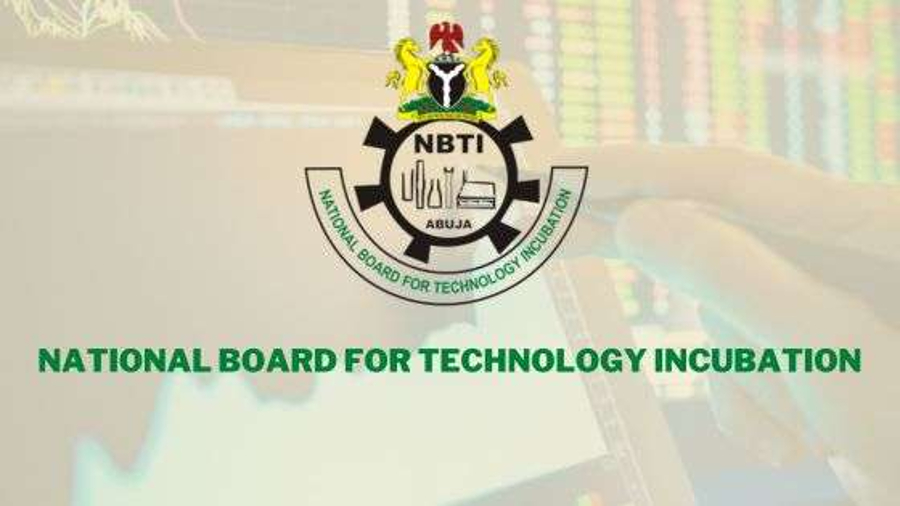
Director General of the National Board for Technology Incubation, NBTI, Dr. Kazeem Kolawole Raji, on Tuesday said the agency is targeting innovations that will address food scarcity and other problems in the country.
Raji spoke at the national showcase of the NextGen Innovation Challenge, 2025, in Abuja, with the theme ‘Igniting Indigenous Ingenuity: Nigerian Solutions, Global Impact’, where he also declared that Nigeria’s greatest resources are the country’s citizens and not minerals.
The event featured 74 finalists who emerged from over 3,000 potential innovators who submitted entries in the 2025 edition of the NextGen Innovation Challenge.
The NextGen Innovation Challenge is a transformative platform engineered to amplify the brilliance of Nigerian minds, and to project homegrown solutions onto the global stage.
Speaking at the event, Raji noted that the 2025 edition of the NextGen Innovation Challenge, which kicked off on May 28, 2025, received over 3,000 applications featuring potential innovations from different parts of the country.
“Every entry, every idea, is a vote of confidence in the future we are building — a future authored by Nigerians, for Nigeria, and for the world. Our goal is not cosmetic innovation; it is deep, systemic transformation: How do we secure food for over 200 million people?How do we bring sustainable energy to the last rural household? How do we ensure that even the most remote child learns from the brightest minds — including those born here, in Nigeria?
“The answers are not in distant capitals. They are here — in this room, in these booths, and in these brilliant minds,” Raji said.
He added that the NBTI, through the NextGen Innovation Challenge, is scripting a new chapter in Nigeria’s history.
“Today, Nigeria is not simply convening an event; we are scripting a pivotal chapter in our nation’s journey — a chapter defined not by natural endowments, but by intellectual assets; not by what lies beneath our soil, but by the boundless ingenuity rising from within our people.
“You, the innovators, are the living proof that Nigeria’s greatest resource is not beneath the ground — it is within our people,” he added.
The NBTI boss added that the NextGen Innovation Challenge aligns with key fundamentals of the President Bola Tinubu administration through which Nigeria is currently undergoing a transformation.
He added, “Under the visionary leadership of President Bola Ahmed Tinubu, GCFR, Nigeria is undergoing a bold and deliberate transformation — anchored on the Renewed Hope Agenda, the Nigeria First Policy, and now, Nigeria’s historic inclusion in the BRICS economic alliance.
“These are not just policies and partnerships; they are platforms — designed to elevate our homegrown talent, strengthen our sovereignty, and power a new era of innovation-led development.”
Raji urged innovators and entrepreneurs to take advantage of the Tinubu administration’s Nigeria First Policy’ as well as the country’s inclusion in the BRICS member countries.
“The ‘Nigeria First Policy’ is a clarion call to prioritize local solutions for local and global challenges. It is an affirmation that Nigerian ideas matter, Nigerian products are valuable, and Nigerian innovators deserve to lead.
“You now operate in an ecosystem that is
deliberately being shaped to favour you— with government support, development financing, and policy reforms aligned to empower indigenous thinkers, builders, innovators and creators.
“At the same time, Nigeria’s membership in BRICS opens unprecedented access to global markets — linking you directly to a multilateral bloc that collectively represents over 40% of the world’s population and trillions of dollars in trade and investment flows.
“This is your passport to new partnerships, new funding channels, new export opportunities, and cutting-edge collaboration with fellow innovators across emerging economies.
“But opportunity, no matter how abundant, is only as useful as your readiness to seize it. You must now think beyond prototypes—toward products. Think beyond ideas—toward impact. Think beyond visibility—toward viability and scalability. Build for Nigeria. Design for Africa.
“Compete for the world. Leverage the local content frameworks that prioritize your solutions in public procurement. Align with the Nigeria First Policy to build credibility and attract government and private-sector buy-in. Position your innovations to solve real Nigerian problems — energy access, food security, healthcare delivery, education, logistics, fintech, and industrial productivity.
“These are the frontlines where the Renewed Hope Agenda meets real transformation. Do not wait for permission to lead—the door is wide open. Let this be your era of audacity, of excellence and of scale. NBTI is proud to be a vanguard of this vision — building not just systems, but ecosystems; not just pipelines of talent, but platforms for prosperity.
“With our trusted project management consultants at UKALD, we are converting ambition into action, and transforming ideas into impact,” he said.
In his remarks at the event, the Minister Innovation, Science and Technology, Chief Uche Nnaji, commended the NBTI for coming up with the program.
He said, “Let me begin by commending the National Board for Technology Incubation (NBTI), the distinguished
judges, and the organizing committee for creating a national platform that speaks directly to the aspirations of our youth and the future of our country.”
He equally urged the investors to take advantage of the innovations showcased at the event.
“To our private sector partners and global friends present here — I urge you to invest in these innovators. What you see today is just a glimpse of what Nigeria has to offer. These young men and women don’t just have ideas — they have solutions, blueprints, and scalable products that can redefine industries and transform lives,” the minister said.
-
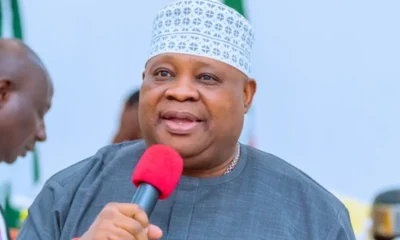
 NEWS2 weeks ago
NEWS2 weeks agoOzekhome asks AGF to enforce court rulings affirming PDP’s victory in Osun local govt polls
-
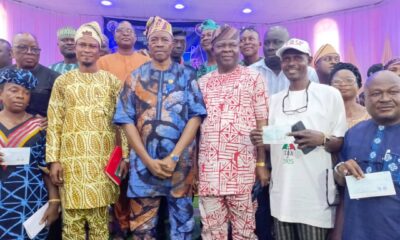
 NEWS3 weeks ago
NEWS3 weeks agoSenator Fadahunsi Launches Revolving Loan Scheme Empowering Over 700 Entrepreneurs in Osun East
-
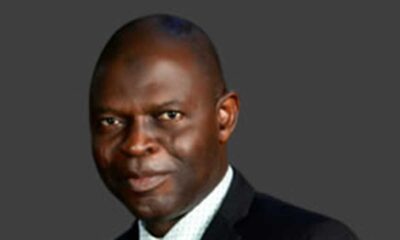
 NEWS2 weeks ago
NEWS2 weeks agoSAN slams FG, alleges bid to divert Osun LG allocation
-
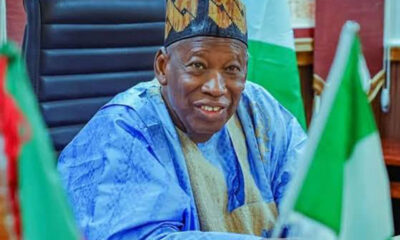
 NEWS2 weeks ago
NEWS2 weeks agoBREAKING: APC National Chairman, Ganduje resigns
-

 NEWS7 days ago
NEWS7 days agoOzekhome Rebukes Adegoke’s Letter, Warns Against Distortion of Court Rulings
-
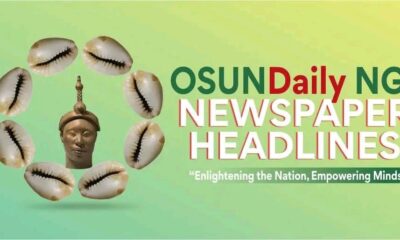
 NEWS3 weeks ago
NEWS3 weeks agoTop Nigerian Newspaper Headlines For Today, Wednesday, 18th June, 2025
-

 NEWS6 days ago
NEWS6 days agoFCT: Many feared dead in terrible accident on Nyanya-Keffi road
-
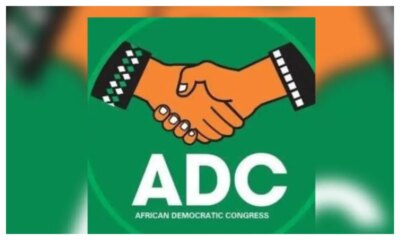
 NEWS1 week ago
NEWS1 week agoBREAKING: 2027: ADC’s entire leadership steps down after adoption by coalition



